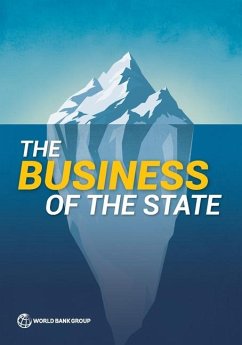The state, as an owner of businesses, competes and collaborates with the private sector, and this involvement has profound implications for investment and growth. Governments actively participate in commercial markets in different forms, from controlling the production of goods and services to investing in firms as a minority shareholder. The impact of state participation on an economy's growth depends on the type of public-private ownership, the types of markets, and the importance of those markets in the economy. The impact also depends on how policies and institutions regulate both the businesses with state ownership and the markets in which they are active. The Business of the State uses new evidence covering 91 countries from the World Bank's Global Businesses of the State database to highlight the distinction between businesses of the state and traditionally understood state-owned enterprises. The report analyzes how different ownership forms across sectors and institutional settings affect private investment, productivity, technology adoption, and job creation. It also analyzes how government participation in markets influences the ability of economies to respond to shocks, from pandemics to climate change. The report proposes a clear analytical framework for understanding the consequences of relying on businesses of the state to attain specific development goals.
Hinweis: Dieser Artikel kann nur an eine deutsche Lieferadresse ausgeliefert werden.
Hinweis: Dieser Artikel kann nur an eine deutsche Lieferadresse ausgeliefert werden.





![Annual Report of the Bureau of Labor Statistics of the State of North Carolina [serial]; 1894 Annual Report of the Bureau of Labor Statistics of the State of North Carolina [serial]; 1894](https://bilder.buecher.de/produkte/65/65582/65582016m.jpg)
![Annual Report of the Department of Labor and Printing of the State of North Carolina [serial]; 1912 Annual Report of the Department of Labor and Printing of the State of North Carolina [serial]; 1912](https://bilder.buecher.de/produkte/66/66170/66170521m.jpg)
![Annual Report of the Bureau of Labor Statistics of the State of North Carolina [serial]; 1896 Annual Report of the Bureau of Labor Statistics of the State of North Carolina [serial]; 1896](https://bilder.buecher.de/produkte/65/65537/65537036m.jpg)
